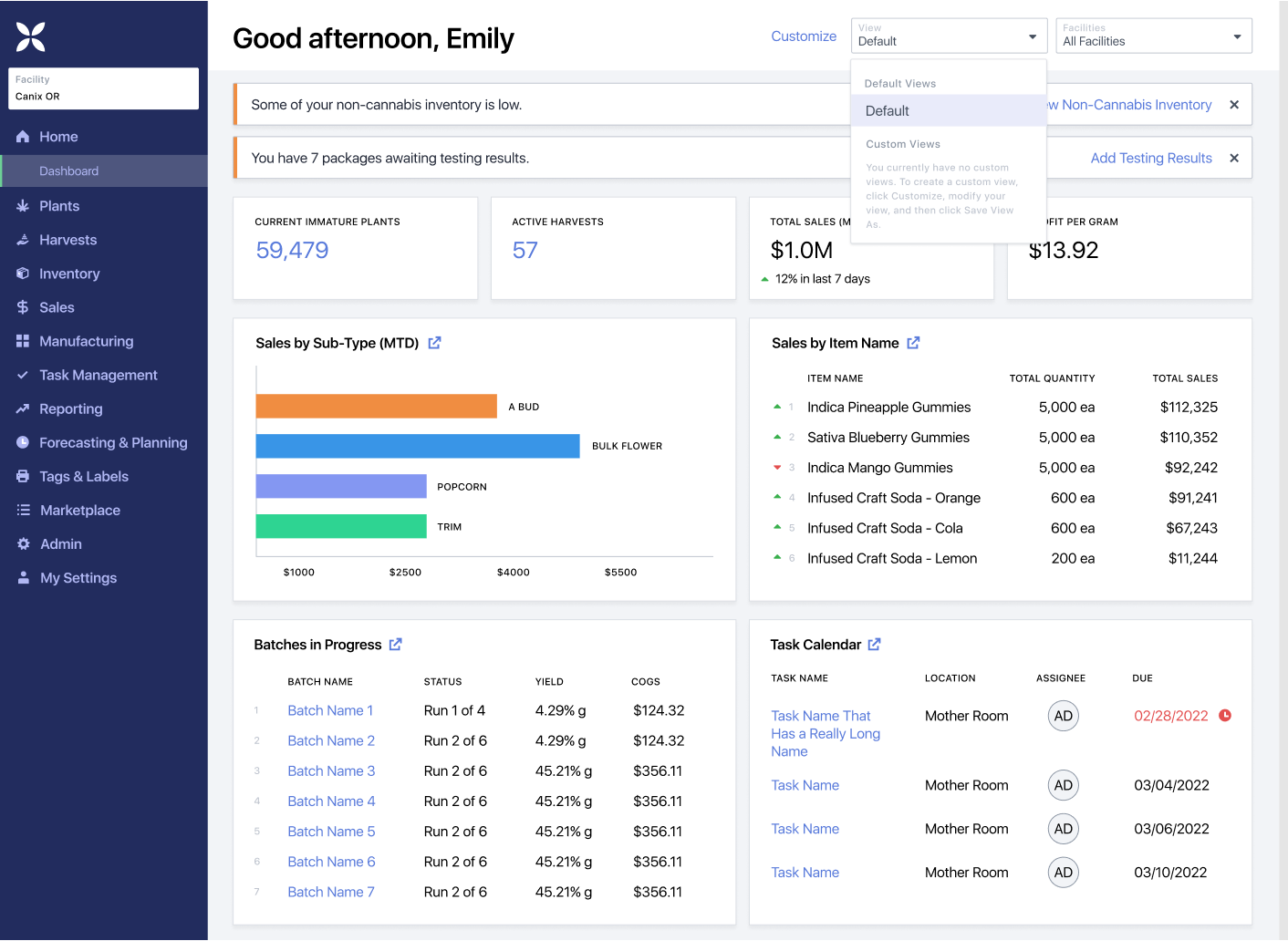Canix today is announcing a $10 million raise from venture capitalists. The company sees using the capital to expand throughout the United States and Canada, allowing it to scale its cultivation forecasting and production planning ERP platform to meet market-specific regulations.
The round was led by an unannounced firm — one that wishes not to be disclosed. Other investors include Altair V.C., Cathexis Ventures and Emles Ventures and other notable angels. Canix won the top prize at TechCrunch Disrupt Startup Battlefield in 2020.
The company says its products are currently used by 2,300 licenses across 400 companies through 17 states and six countries. This funding allows the company to expand even further, targeting new markets and broadening its product offering to help operators better predict and calculate profits per gram.

Image Credits: Canix
“Right now [Canix] can help understand the present value and the past value of the inventory across multiple variables,” said Stacey Hronowski, Canix co-founder and CEO. “This gets exciting because we touch different parts of the supply chain, and we provide the data to say, you know, what can you expect to make over the next nine months.”
Hronowski says this predictive feature allows operators to prepare their businesses for future needs. If, for example, an operator needs to sell 90 pounds of weed by a specific date, Canix will soon provide the granular data on when to start cultivation, who needs to be hired to process the plants, and when the crop will hit the market (and at what price range).
Scaling Canix to new markets requires the company to address market-specific regulations. Each state where cannabis is legal has widely different laws for operators within their borders.
“There’s a significant amount of product work that needs to be done to expand to different states,” Hronowski said. “Right now, we’re in 13 states outside of California. Going to Illinois or New York state requires integration with new compliance systems because a different type of system governs those states. Ensuring the system is very robust is critical because, for example, labels are different in every state. Manifesting is different in every state, and compliance rules are different in every state. You can’t get it wrong.”
This state-by-state regulation has been a bottleneck for Canix.
The company says it’s starting this expansion in Illinois, one of the largest and fastest-growing markets to recently greenlight recreational pot. After Illinois, the company expects to move into New York, Utah, Washington and New Jersey.
Hronowski sees Canada as a big opportunity. “Canada offers the advantage of being federally legal,” she said. “There are large cannabis companies there. It’s a little bit less Wild West than some of the new markets in the U.S. As a market, there are fewer competitors in Canada. So given the timing, we think the time is right to expand into Canada, too.”
